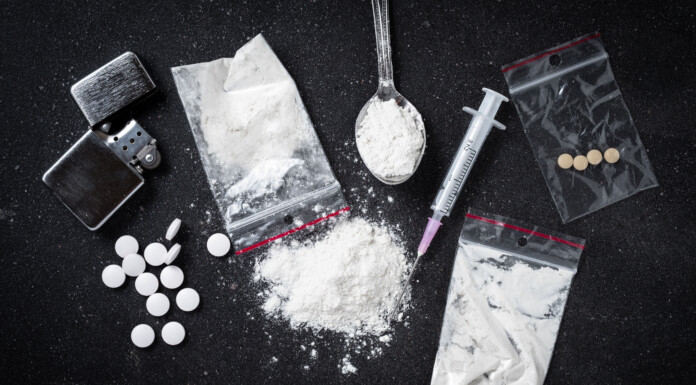The NZ Drug Foundation says fear of criminalisation is costing the lives of New Zealanders, and it’s calling for law changes to stop rising overdose fatalities.
The call comes after 13 people in Wairarapa overdosed after taking fentanyl they reportedly thought was cocaine in July last year.
None of the 13 people died as a result of an overdose – something described at the time by NZ Drug Foundation executive director Sarah Helm as “literally nothing short of a miracle”.
“Overdose from fentanyl happens incredibly rapidly. Waiting for an ambulance can be the time that it takes for someone to die,” Helm said.
In December, a 68-year-old man was charged with possession of cocaine and methamphetamine for supply as a result of an investigation into the local fentanyl overdoses.
A police spokesperson told the Times-Age that it completed a “thorough investigation” but that there was insufficient evidence to charge anyone in relation to the overdoses.
At the time of the overdoses, the Drug Foundation called for naloxone – a lifesaving opioid overdose reversal treatment – to be more widely available in New Zealand, and all first responders issued with the treatment.
Now, the NZ Drug Foundation has released an “evidence-backed plan” aimed at ending overdose deaths in Aotearoa.
Between 2013 and 2021, overdose deaths increased nearly five-fold to 171 people in 2021, according to Helm – putting the overdose death toll ahead of national drownings and over half the road toll from the same year.
Overdoses deaths are “tragic and very preventable”, she said.
“We can’t go back in time to stop the devastating loss experienced by those 171 families, but we can and must act now to prevent further tragedy.”
Helm argued that criminalisation contributes to the death toll because people may hesitate to call 111 or seek medical help for an overdose.
“We need drug laws that prevent death rather than contributing to it. At the least, a ‘good Samaritan’ provision in the law would mean that anyone who calls for help when witnessing an overdose would be protected from drug-related charges.”
Helm said most fatal overdoses in New Zealand are linked to opioids and benzodiazepines; synthetic cannabinoids are the third most overdosed substance in Aotearoa.
According to Medsafe, fentanyl is a potent opioid painkiller with a “rapid onset and short duration of action.”
Helm said the foundation has created a “comprehensive overdose prevention plan” that examines to evidence-led solutions from Aotearoa and abroad.
The foundation wants to see more overdose prevention services and a dedicated response service to work with people who have experienced a non-fatal overdose.
It also advocates better distribution of naloxone and other overdose reversal medicines and increased preparation for changes in illegal drug supply.
Helm said New Zealand is vulnerable to changes in the drug supply and must be ready to act quickly.
“We’ve seen how fentanyl and other ultra-potent opioids have devastated communities in North America. We need to be monitoring trends, and we need to be prepared to respond if these drugs become more widespread in New Zealand.”
The plan is focused on “meeting people where they’re at”, Helm said, with services to help reduce overdoses and harm at every level of use, not just when responding to crises.


